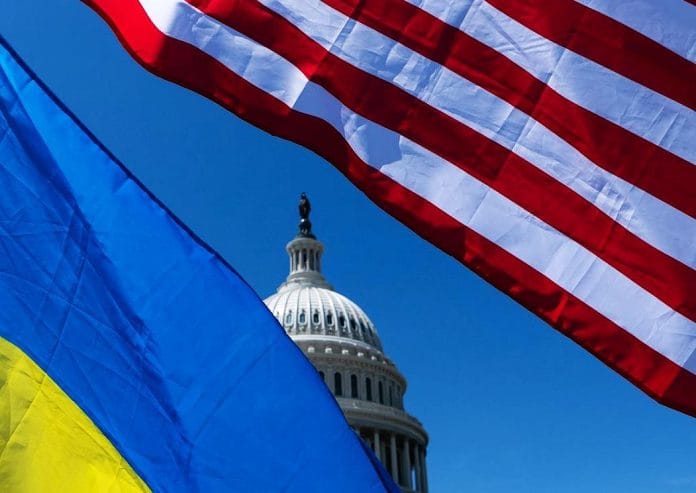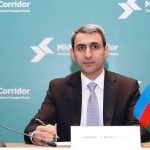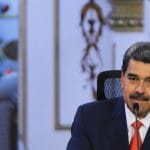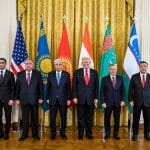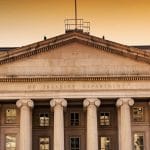The U.S. International Development Finance Corporation (DFC) announced on September 17 a $75 million equity commitment to the U.S.- Ukraine Reconstruction Investment Fund that will provide the seed capital needed to jumpstart the fund’s investment in critical minerals, hydrocarbons, and related infrastructure in Ukraine.
DFC’s seed capital equity investment will be matched by the Ukrainian Government, for a combined total of $150 million. The investment will support Ukraine’s reconstruction and long-term economic recovery, strengthen U.S. natural resources supply chains, and advance U.S. economic growth, security, and innovation. The seed capital will support the initial investment stage ahead of the gradual Ukrainian royalty contributions to the fund.
According to the DFC, the new fund will leverage American talent, resources, and governance standards to improve Ukraine’s investment climate and spur new strategic investment opportunities for the United States, other allies, and aligned private sector partners, including multilateral development banks and other private sector investors. It will prioritize investments in natural resources, energy, infrastructure, and critical mineral supply chains that are essential to advancing U.S. economic prosperity and vital to both U.S. and Ukrainian national interests.
DFC’s announcement follows the inaugural board meeting of the Fund on September 3, closely watched by Kyiv, where DFC was appointed Chair of the Fund’s board. At the meeting, the Board also adopted committee charters and discussed valuation protocols that will facilitate the crediting of preferred shares in the Fund to the United States for new military assistance items it delivers to Ukraine. DFC noted that this new transaction may be subject to additional steps prior to commitment and closing, including congressional notification.
Conor Coleman, DFC’s Head of Investments and Chief of Staff said, “By deploying this initial capital, we aim to catalyze private sector investments in Ukraine through the Fund’s investments, to rebuild critical infrastructure, unlock natural resources, and generate economic prosperity for the United States and Ukraine. This investment underscores DFC’s partnership with Ukraine to help advance the country’s recovery and both our countries’ access to critical natural resources essential to safeguarding national security.”
“Ukraine is matching the United States’ contribution, underscoring our shared commitment to invest together through the Reconstruction Investment Fund. The Fund will finance projects that rebuild critical infrastructure, scale emerging technologies, and responsibly develop our natural resources. These investments will create jobs in both countries and enable American and Ukrainian companies to work together. Our partnership will de-risk global supply chains and mobilize private capital to anchor Ukraine’s reconstruction and security,” explained Oleksii Sobolev, Ukraine’s Minister of Economy, Environment and Agriculture.
How does the new fund relate to the so-called “Minerals Deal?”
The U.S. – Ukraine Reconstruction Investment Fund is essentially the oft-discussed “minerals deal” in operational form: it establishes the framework for how revenues from new natural resource extraction projects (minerals, oil/gas, associated infrastructure) between the U.S. and Ukraine are shared and reinvested; it does not/not encumber existing revenue streams.
In a nutshell, the minerals deal and the new Fund stipulate a revenue-sharing model (50/50 for new licenses), protects Ukraine’s resource sovereignty, and channels funds into reconstruction and recovery via joint oversight. Revenues from other kinds of projects such as infrastructure (seaports, related logistics), and projects tied to strategic and economic recovery will also be reinvested in the new Fund.
It is important to note that the U.S. contribution to the Fund can come not just from direct financial investment, but also via future military assistance. In some official statements, military aid or weapons provision to Ukraine may be fully credited as part of Washington’s share in the Fund. Details and procedures remain to be finalized.
Experts also warn that it may take a decade or more before meaningful returns on projects are realized. This is especially due to the need to rebuild infrastructure, map resources, and deal with regulatory, legal, as well as security issues.
The DFC has come a long way
The U.S. International Development Finance Corporation, established in 2019 with bipartisan support under President Trump, is America’s development finance institution, created by merging the former Overseas Private Investment Corporation (OPIC) with separate elements of the former U.S. Agency for International Development (USAID). Operationally, DFC partners with the private sector to advance U.S. foreign policy and strengthen national security by mobilizing private capital around the world. DFC targets its investments across strategic sectors including critical minerals, modern infrastructure, and advanced technology. Under Trump, DFC is increasingly being used as a mechanism to deliver on foreign policy commitments which might formerly have been delegated to the now-defunct USAID, but with a focus on private sector engagement.

